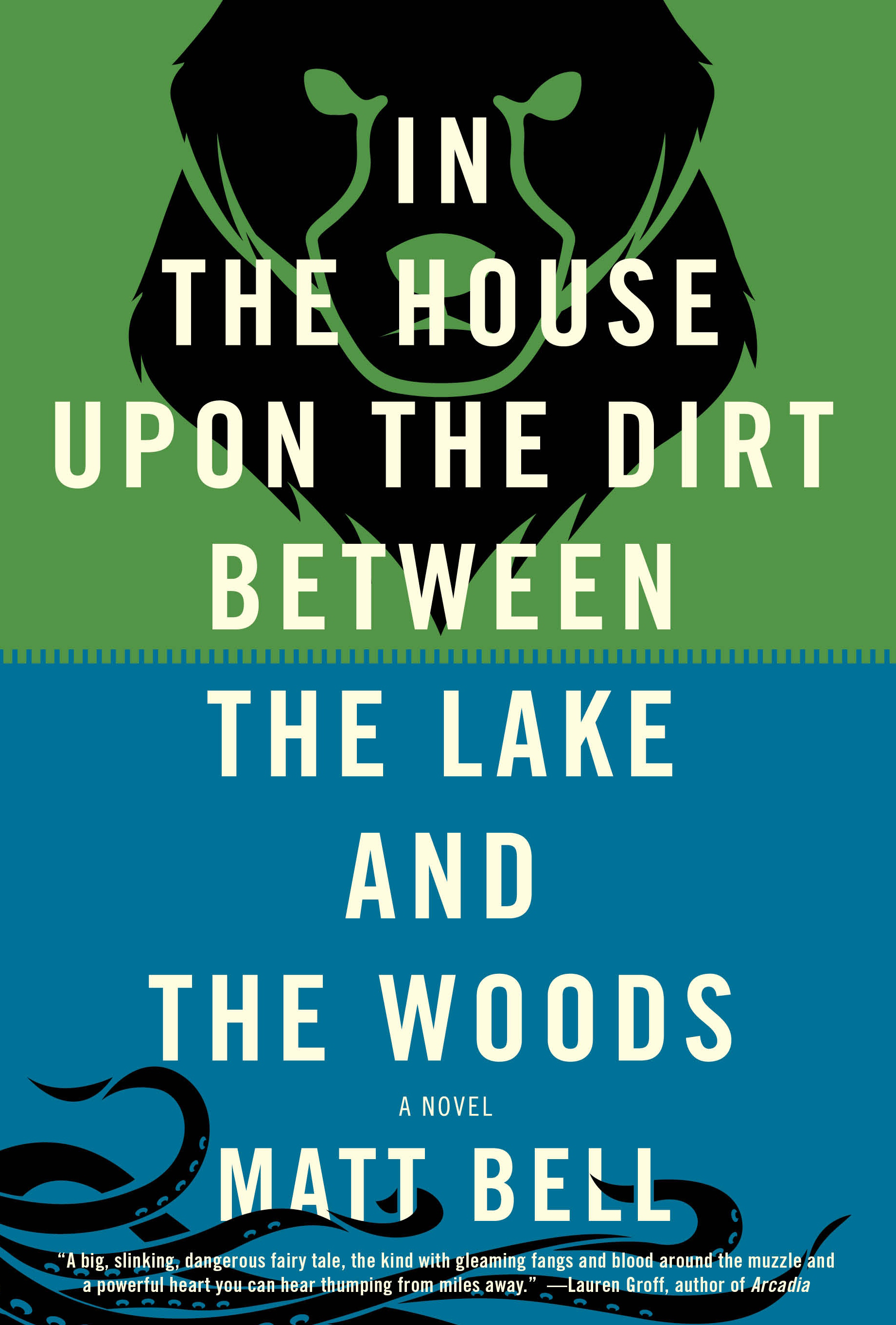Garielle Lutz once called the sentence a lonely place. For Lutz, that lonely sentence is a site of beauty and complexity. She writes conventional stories with musical sentences.
Her story “Pulls,” which appeared in issue number 38 of the Columbia Journal, moves through middle age and marriage. “Pulls” is also about the banality of days filled with air mattresses, budget cats, and magazines. “She was aimless of face,” writes Lutz of a child her narrator sees at a mall. “But things had been staged in her hair—demonstrations of metal and feather in the low altitudes of stickied coralline…She had just been graduated from the two-year institute outside of town.”
Sometimes, all you need is loneliness.
Sophie Kemp is a writer in Brooklyn. Here nonfiction work has appeared in GQ, The Nation, and Vogue. Her fiction has appeared in Forever Mag.
Pulls
Garielle Lutz
It has always been my custom to go hungry for people, then make my way practically from door to door. But there was a time I had a wife and a new best friend.
I was just doing the weary thing of being in my forties.
My wife wanted to be known best for her parting shots, the breadth of her goodbyes. I could count on her to be back within hours, though, tidily silent in her chair.
And the best friend? He was an uncrusading man, rebut table in everything. He looked felled, or probably at least fallen.
I began dividing my nights between them.
This wife and I had a rented house, two storeys of brutal roomth. The air conditioner required a bucket underneath it. Our meals were the cheapest of meats thinly veiled.
My best friend had some uncovetable rooms above a garage. There were never enough pillows or cushions to go around.
He and I took down hours with our talk, razed entireties of suburban time.
In bed, my ear pressed against his chest, I would listen for a tolling of anything better kept uneternal.
My wife and I were stuck behind curtains she wrung down season ally for a change in pattern or tint.
Here’s her name—Helene—though she’ll probably tell you different.
For a while, I tried to get her steered toward women. We settled on a blowhard of sporty despondence, crude to the eye but newly starving for her own sex. I staked the two of them to a meal and threw in good wishes.
She came home ebbing in all essences, looking explored and decreased.
She wanted to know about my best friend. I told her that he and I fell onto each other more in sexual pedantry than out of affection, that our life together did not grow on us or chew away at our hearts. His body was just profuse foolery.
Thirty-eight years of picked-over, furying age she was—brittled hair, a bulwark forehead, a voice that sounded blown through. There were hidey-holes in whatever she said.
I felt indefinite inside of her, out of my element and unstately in my need.
One night he wanted to know what it had been like to go through with the nuptials, the hymeneals. Not much had held up in memory. I let out that the minister had spoken of a “middle ground” between women and men or husband and wife, I forget—some place irrigated and many-acred, maybe a plain. I’d felt unchampioned that day. The minister got me alone at the reception, snapped his fingers, said, “This better not’ve been some skit.”
There are only two things, really, to ever say to anyone.
Try: ”I’m very happy for you.”
Or: “This is just not done.”
I made no more than the arcanest of passes at others. They prob ably hadn’t even known they’d been addressed or beset. I worked for a sloganless bail-bond concern. The people closest to me in seating were a rough-playing woman and a man about my age, drowning in the hours. The woman drank liquored sodas that brought something floral into her voice, petally with extra syllables. The man took a bathroom break whenever he saw somebody else come out. Maybe he found something engreatening about being in there so soon after anything dirtily human had been done. I pictured him taking deep, treasuring breaths, filling up on us. Home was probably just an air mattress somewhere.
I lived in the lonelihold of my portents and pulls.
Weeks kept fleeting past us.
My wife restocked her mind daily with factual packing from TV and the papers.
I would want a day to quit. Thinking what, though? That the one rising behind it might have a more encouraging bone structure in its hours or at least be calibered better for my regrets?
Then one night she wanted to know how she might recognize my friend on the street if she took up walking again.
We were gliding on webbed porch furniture, though this was hard-biting autumn already.
I spoke to her of the ordering of creases above his eyes, the general tempo of both his blinks and his nostril-flarings, the pitch and range of his arms, the usual drift of the rib that slid about inside him.
Later in the week, I let her peck at me while I still freshly smacked of him. But nothing eased for her or for me.
My parents were still alive, still short on marvelry, still saying, “We’re all he has.”
I had a sister, too, drying out again in the tedium of debt somewhere.
She was an acher, patient but baneful in her morbid sweats.
I thus sing the praises of my kind, but more often I look for signals in the faces of grocery cashiers who are required to say “hi”—women mostly, overevident in their agony; features miseried, it must be, by hitches in the upbringing of their men.
At home I became known for the reasonableness of my every threat.
We tried pets, my wife and I. Bought a dog at cost, then a budget cat.
The dog was unawed by my guidance, my sweet talk. I would try to drag some balm out of a day by unsnagging the thing’s coat.
The cat behaved—out of a love or regard, though, that was iotal, toiling.
If you bought for one, you had to buy for the other. (Mostly novelties to squeeze for a spectral, unmerry squeak.)
I wish I could remember whether they bailed on us or just died, overfed.
Some “to be sure”s:
- My best friend wasn’t trying to pull anything. The time he had on his hands was not about to bounce back to better havocs. It seemed snug where it was.
- My wife had worked no fingers to the bone.
- Neither claimed to be a walking encyclopedia.
- He was a substitute teacher and she an office ornament, I have always meant to say.
Still, they prodded; they impended.
Another generation had shot up behind us anyway.
I’d heard about these people—that they were handling things differently.
This was the generation that was discovered to have been “just reading words” and then was taught how to get through a text book by coloring the sentences so that a page, when the fingers had finished with it, looked beribboned, or zoned into chromatic blocks and runs. The books were handed in to the teacher, who graded mostly on pizzazz.
Nothing went untouted about these kids.
I went out and found one at a shopping center.
She was aimless of face, but things had been staged in her hair—demonstrations of metal and feather in the low altitudes of stickied coralline. What she wore wasn’t so much a cover as a kind of kiting, blown about before her as she thugged away at a mood. Whims of string (from a shoe, I think) were ringed around her wrist.
She had just been graduated from the two-year institute outside of town.
I took her out for one of the current coffees.
She asked whether I knew that cold water melted ice cubes faster than hot.
I nodded learnedly.
She mentioned “sleeping in.”
I told her I had been well into my central twenties before it dawned on me that to “sleep with” someone didn’t mean to take a companion for your horizontal hours and thereby get sleep domed over you so much higher than it would if you went to bed alone. I’d thought that was how you gave greater compass to your dreams.
She sipped, and shook her head, and said sleep roamed all over her—it was tramply; it left reddening trackage on her back.
“Not that you’ll ever get to see,” she said.
She wanted my address anyway. I gave her the friend’s. I did get one letter later, a goodbye. It was, she wrote, a “bill adieu.” I am leaving out the hobbies, the odd jobs, the aplomb I had that just got harder and harder on people.
But I’ll admit I went to the doctor about the ache in my face. It eventually swelled my cheeks and slit into my sleep.
The doctor called it a “referred” pain. It had arrived, he claimed, from someplace else.
He shunted me off to a specialist, who said the body always waits until the last minute to explain itself to you.
I was soon pampered with pills and ill-used in furors.
My moods now draped themselves over everything.
And my wife? I’d borne some of the brunt of her fresh starts, seen what helping hands could do with someone like that.
Even her arm—the flesh of it looked tilled, perfected in every lurid turning away. It could withstand scrutinies more spiteful than mine.
She fell in with a man full of biblical quips, brash intelligence about the presaging capers of his Lord. I saw her vivified by his side in the business district one day. I was by myself in the house every other night. I liked the reliable isolations. I spent some time in the book she’d been through. There had been obvious violence in her sessions with it. The binding was loose. It barely had a clutch on the leafage anymore. The bookmark kept sliding out.
She came back to me with tiny growths in her groin and a new, striving vagueness of eye.
Then I found a huge laundry room in an apartment tower near the house. For a time, I couldn’t do enough laundries there. Nobody caught on that my basket was practically empty. I’d enchant every machine with dollar-store detergent, then get them gushing and thumping through their cyclicals.
I limited myself to one item per load. This ensured a cautious, tyrannical clean.
Even better, there was a lost-and-found, a big cardboard number torn down a little from the top. I started bringing things to kick in-whatever clamored up toward me from the lowest of my life. The thinking must have been that I was most devoted to people I hadn’t yet met, that I was best at laying out courtesies in advance. Thus the box filled mostly with helpings from my wardrobe: shirts gathering further shine; slacks that were negligences of hemmed fabric, down whose twinned chutes my legs had once gone their separate ways.
My best friend and I were now living in a roundabout familiarity that, from farther off, might have been taken for an advance in attachment.
We made it to the yard sales and brought back further caprices of the culture. Once it was just a mug whose hectic lettering said, “READ A MAGAZINE TONIGHT!”
But nothing much was flaring in my heart.
One night I told him that our lives differed in unbeautifying ways. I told him our bodies could never really be in league.
I pointed at his hand. It had just left mine and was started on its way elsewards.
His fingers always looked as if they were squabbling among themselves, undecided about what might be deserving of touch.
My wife was walking a fine line, wearing herself away from me.
Months broadened in their burden.
Then the advent of her scandal: sprigs of intimate hair trapped, specimenized, in the clear sealing tape all over the holiday packages that went out one noon to “influentials.” Her defense? Anything hailing from a body had to be worthy of at least flitting reverence on your way to a compulsory check-in or a sink.
But cracks had started forming in her words. Things ever after were fissured in her speech.
The girl wanted to see me after all. Told me to meet her in the new wing of the closest mall. There was a swinge of ambition in her step as she saw me drawing near.
She hated all her friends now, she said—preeners mostly, demanding dripling sorrows of every instant in her shadow. And what about me? she wondered. Did people my age have friends?
I mentioned a couple of people who lifted emotions with out giving credit yet expected originality in any affections coming from me.
“Tell me your wife’s side,” she said.
One day I caught sight of a man who had assumed himself anew in my slacks, my shirt, my jacket and shoes.
He was startleproof in some sort of painless hurry, apparently.
The look he gave me was not grateful, or even salutatious, but I felt at large.
One night the three of us were in our right minds around the same table. There might have been a birthday. I remember that some thing consolatory had been ciphered into the icing of a store-baked cake.
I grabbed her hand.
Released its fingers—or set them out, rather, in severalizing meander—onto his arm.
I must have thought I was getting something exalted on one or the other.
The fingers, I could see, were stuck.
I got up, feeling scanted and surpassed.
My life now dates from that day.




